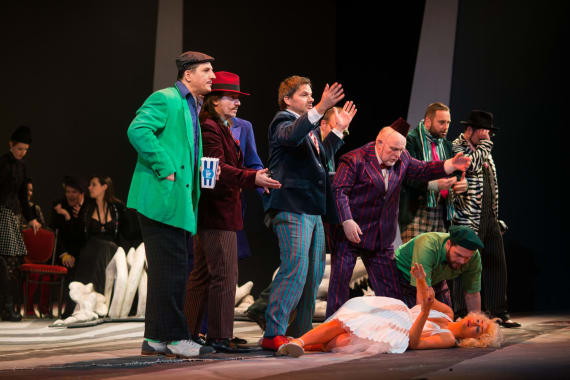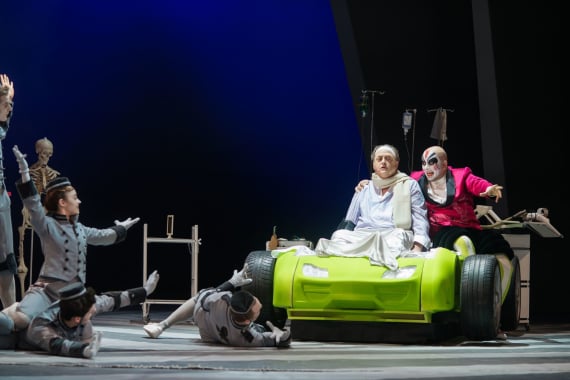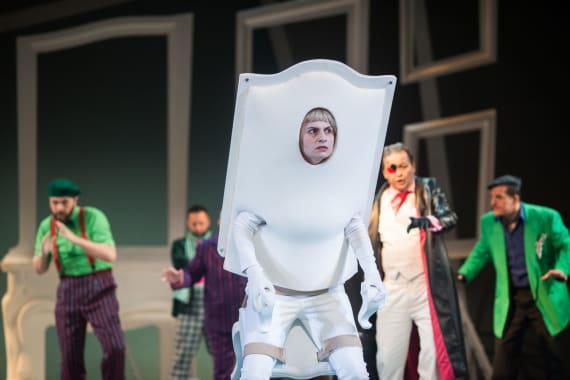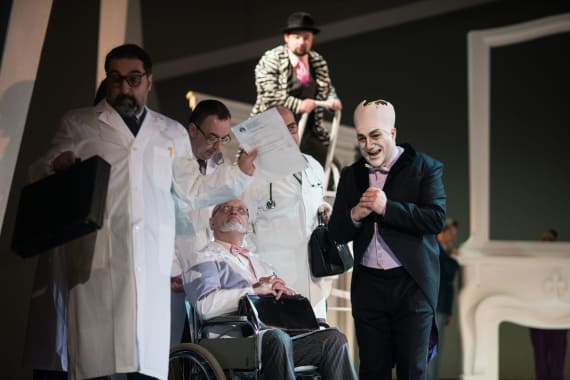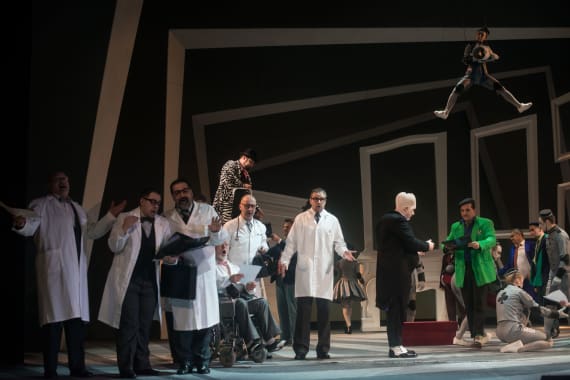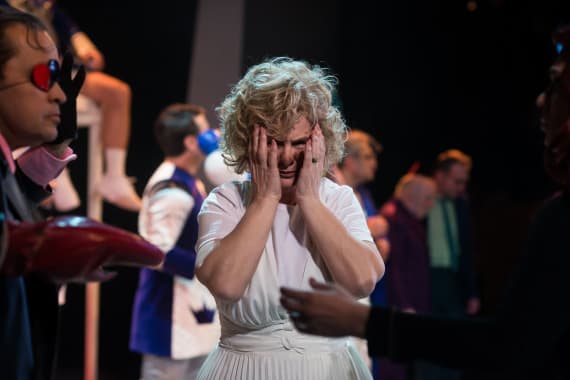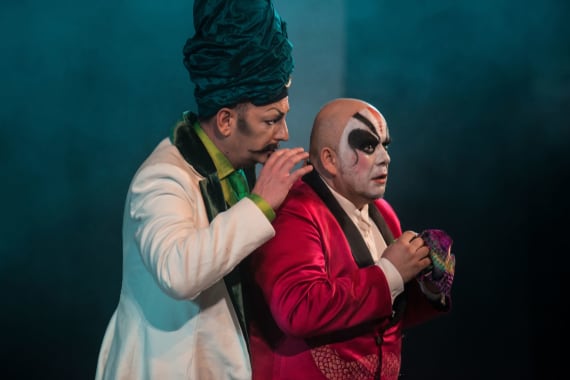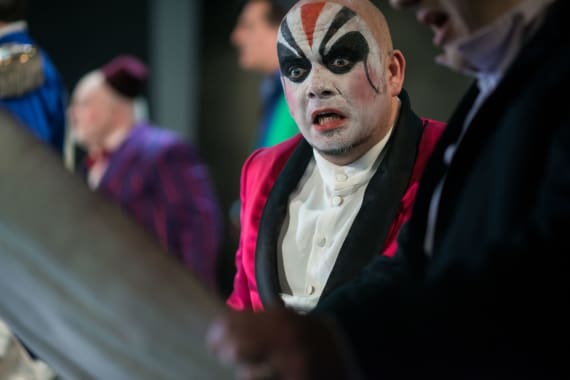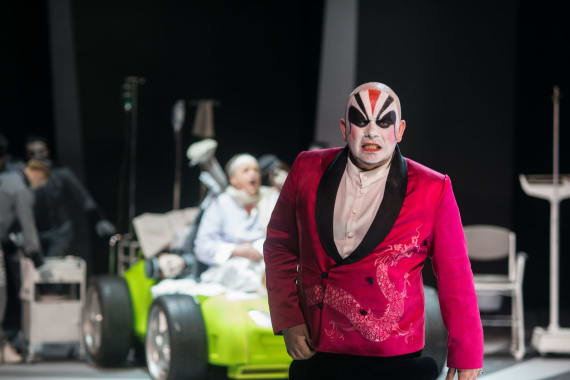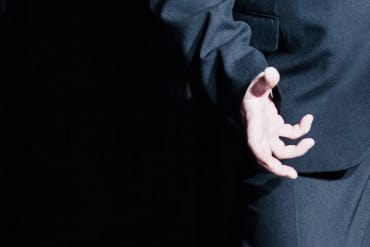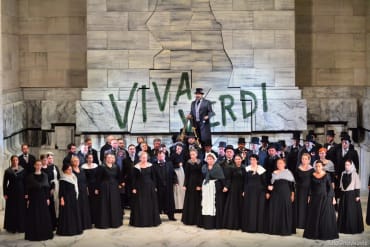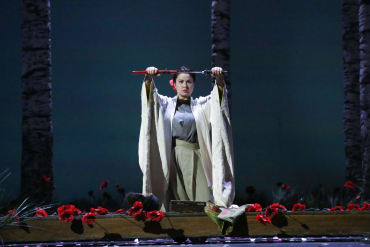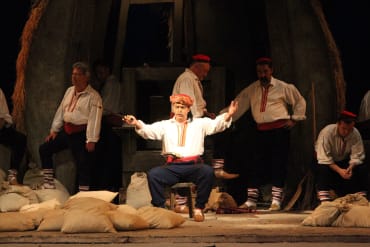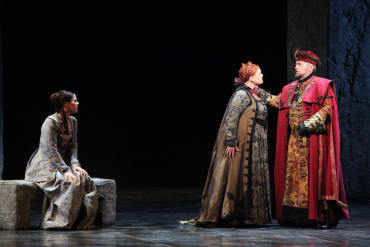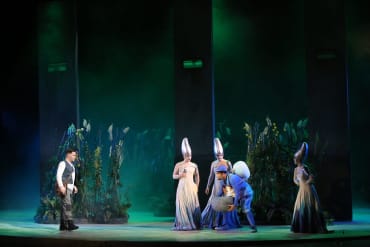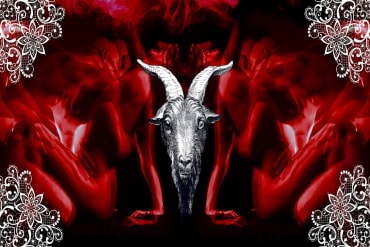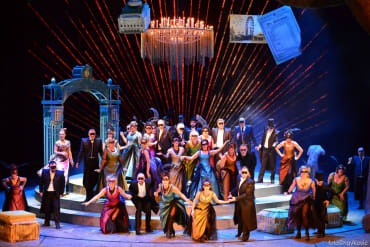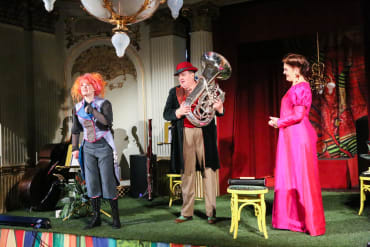The great Russian composer Sergei Sergeyevich Prokofiev wrote the satirical opera The Love for Three Oranges when he was only 28. It was commissioned by the Chicago Opera Association and received its premiere performance on 30 December 1921 at the Auditorium Theatre in Chicago. The libretto, based on a comedy by C. Gozzi and a fairy tale by G. Basile, was written by Prokofiev himself who used Meyerhold’s adaptation of the original. The famous Russian director Vsevolod Meyerhold added a new dimension to the fairy tale about oranges, the one in line with his vision of theatre based on the multivalent meanings of the commedia dell’arte and street theatre. This version and the numerous possibilities it opened for its scenic realisation prompted Prokofiev in the 1920s to write an opera the likes of which the world had not seen before. The events of the opera – and their associated stage sets – inspired Prokofiev to create striking music free from any sentimentalism. The opening prologue features an argument about which form the opera will take. Everyone wants something different until those who are in love with play chase away those who cannot agree and the show, whatever its form, can begin. A crank announces that we are about to see The Love for Three Oranges, a piece about the King of Clubs who is unhappy that the Prince is ill with melancholy, which can only be cured by laughter. The evil witch Fata Morgana has cast a spell on the Prince causing all attempts to cure him to fail. After numerous intricacies, funny and sad events, unhappy and happy romantic plots, the Prince is freed from the curse and can marry his loved one.
This opera is one of the cornerstones that determined the course of contemporary music and the modern notion of opera. The Love for Three Oranges was composed in the early and most radical phase of Prokofiev’s career and, together with his other works, it changed and popularised contemporary music. The honesty, simplicity, humour of his music, with its peculiar style, acquired many fans all over the world. The inclusion of this work in the repertoire of the Zagreb Opera after 46 years brings the freshness of a different approach to the performing arts, that of Total Theatre.
NIKŠA BAREZA graduated from the conducting programme at the Academy of Music in Zagreb, after which he continued his training with M. Sachs, H. Scherchen and H. von Karajan. For years he collaborated with conductors such as L. Matačić, F. Leitner, O. Suitner, N. Harnoncourt and with composers like B. Britten, C. Orff, O. Messiaen, L. Dallapiccola, G. Petrassi, D. Shostakovich and L. Nono. He worked all over the world, collaborating with the greatest orchestras and conducting several distinguished European orchestras, since 2014 he has been the Opera director at the Croatian National Theatre in Zagreb. He has received many domestic and foreign awards.
KREŠIMIR DOLENČIĆ, theatre director, began his career as a student at the Academy of Dramatic Arts and directed around 70 operas and plays in Croatia and around the world, from the US to China. He was the director of the City Drama Theatre Gavella for 10 years and the general director of Dubrovnik Summer Games. He teaches acting at the Academy of Dramatic Arts in Zagreb. He has won many Croatian and international awards.
Dobili smo iznimno vrijednu predstavu u koju je uložen velik trud i puno znanja svih ansambala, počevši od orkestra pod vodstvom maestra Nikše Bareze.— Večernji list
Muški su pjevači dominirali scenom jednako glumom kao i pjevanjem, pa su njihovi nastupi odjeknuli potrebnom glasovnom kvalitetom te glumačkim intenzitetom i šaljivošću.— Hrvatsko slovo
Nalik velikom scherzu, koji u opernoj formi donosi kombinaciju humora i satire, bajke i nadrealizma, opera Zaljubljen u tri naranče u novoj je inscenaciji na pozornici HNK u Zagrebu pronašla odličnu kombinaciju zamisli i realizacije…— Klasika.hr


